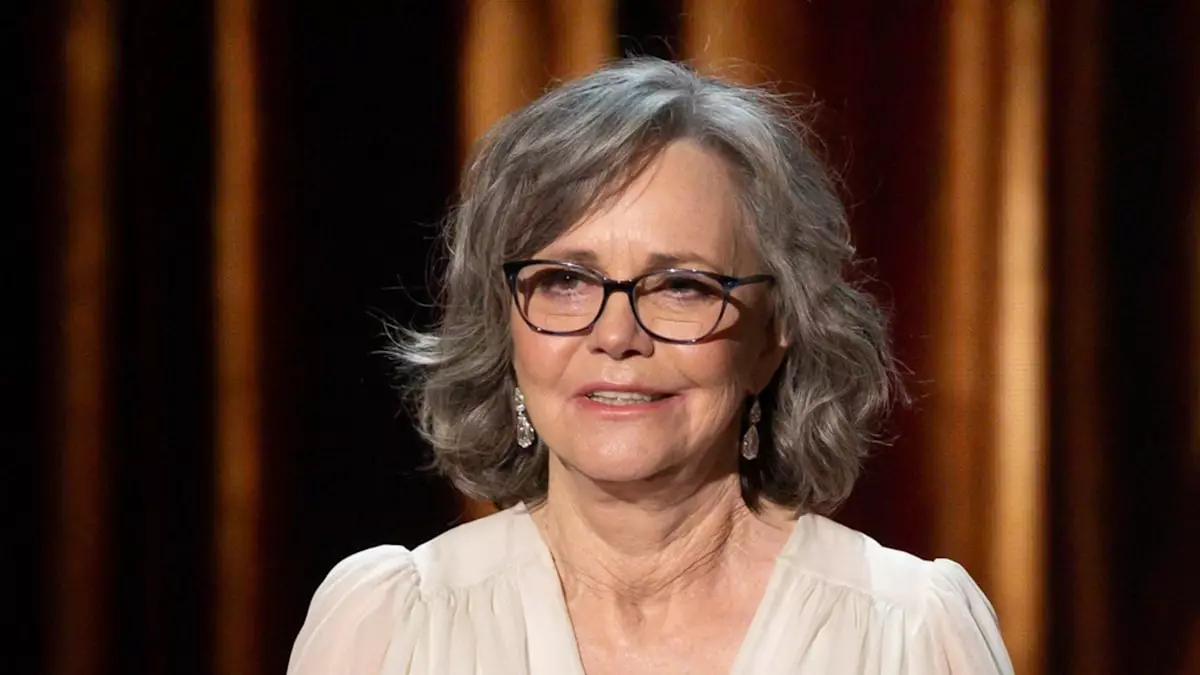In a brave act of vulnerability, Sally Field, an acclaimed actress known for her two Academy Award-winning performances, opened up on social media about a harrowing chapter from her teenage years—a time when she faced an unplanned pregnancy and was forced to navigate the treacherous waters of an illegal abortion in 1964. This candid disclosure comes amid a turbulent political climate, wherein reproductive rights are at the forefront of the upcoming 2024 elections, and Field’s voice is a crucial addition to the ongoing discourse. Her story acts as a poignant reminder of the personal struggles many women faced in a time when options were severely limited, further emphasizing the dangers of limiting reproductive rights.
The Weight of Shame and Silence
Field’s narrative is laden with feelings of shame and isolation, emotions that many women have grappled with in similar situations. She characterized her experience as “horrific,” and despite finding a supportive family friend who helped her, the overall lack of choice and financial independence deeply scarred her. At just 17 years old, Field found herself in a frightening predicament. Her recollection serves as a reminder of the societal pressures women faced in the 1960s, where family planning and reproductive autonomy were virtually non-existent for those without means or adequate support systems. By speaking out, Field shines a light on the stigma still surrounding abortion and urges us to recognize the trials women endure when navigating their reproductive health.
Field recounted a chilling detail from her procedure: the absence of anesthesia and the exploitative environment where she found herself helpless. The dual agony of experiencing physical pain while later realizing that she was subjected to sexual abuse during the procedure casts a dark shadow over the experience. Such violations are a grim reminder that women’s autonomy over their bodies is often undermined by those who should provide care and support. This moment encapsulates the broader implications of restrictive reproductive laws: they do not only threaten health and safety; they expose women to potential abuse when seeking essential medical services.
As Field reflects on her traumatic experience, she highlights a striking irony—just a few months later, she landed the role of Gidget, symbolizing the “All-American girl next door.” The contrast between her public persona and private turmoil underscores the recurring theme of women leading double lives, often consumed by societal expectations while battling their personal demons. In a culture that romanticized the idyllic image of womanhood during that era, many, like Field, were grappling with painful truths hidden beneath the surface.
A Call for Collective Action
In her heartfelt message, Field emphasizes the collective suffering experienced by women of her generation. She articulates a sense of duty to advocate for the rights of future generations, reflecting a broader desire among members of her generation to fight against the regression of reproductive freedoms. By aligning herself with political figures such as Kamala Harris and Tim Walz, Field encourages active participation in the upcoming elections. Her plea resonates with a sense of urgency—reminding us that the strides made in reproductive rights could easily be reversed, and it is essential to mobilize for protection against such a potential rollback.
Field’s story is not merely a personal narrative; it is emblematic of a broader conversation surrounding women’s rights and bodily autonomy. By bringing her experience to light, she removes some of the shroud of shame that has historically cloaked discussions about abortion and reproductive health. Her willingness to share promotes dialogue—an essential step in understanding the magnitude of these issues and unearthing the experiences that have shaped women’s lives over generations. As we approach a pivotal moment in political history, her message encourages society to engage not only with past traumas but also with future possibilities, insisting that we cannot retreat to a time of silence and stigma.
Sally Field’s courage in revealing the details of her painful past ignites crucial conversations surrounding reproductive rights, personal autonomy, and the enduring struggle for women’s health. It serves as a reminder that the fight for these rights is not only a political issue but is deeply personal and incumbent upon us all to advocate for a future that respects and cherishes the autonomy and health of every woman.

